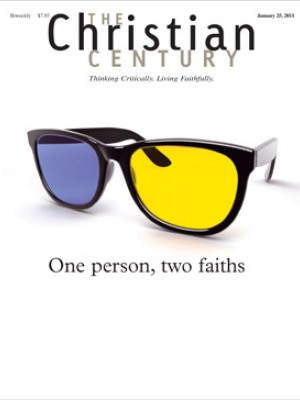UCC, which urged lifting ban on gays in military in 1993, sees vindication
The United Church of Christ, with its traditionally liberal leadership, has often passed resolutions at national gatherings that seemed "ahead of their time." Such was the case when the UCC's biennial General Synod in 1993 "strongly urged" the U.S. government to end the ban against gays and lesbians in military service. But it wasn't until the U.S. Senate voted 65 to 31 last month to pass a House-approved bill and President Obama signed the repeal into law in pre-Christmas actions that UCC activists could claim vindication.
Although the 17-year-old military policy carried the label of possible anonymity—"don't ask, don't tell"—some 13,500 openly lesbian, gay and bisexual persons were discharged from the military in that period.
In a letter from Obama released December 22 at the bill's signing, the president said, "Gay and lesbian service members—brave Americans who enable our freedoms—will no longer have to hide who they are." Before the law signing, Obama encouraged once-discharged military personnel to reenlist: "We will be honored to welcome you into the ranks."
Read our latest issue or browse back issues.
The United Church of Christ noted in its 1993 synod resolution that the Cleveland-based denomination, which has about 1.2 million members in autonomous congregations, had pioneered the ordination of openly gay ministers decades earlier. Its General Synod of 1975 affirmed "the full participation of gays and lesbians in church and society."
The UCC Coalition for LGBT Concerns rejoiced alongside like-minded ecumenical groups in the surprising vote to repeal that included several Republican senators.
"Last weekend's dramatic reversal vote was a vindication of decades of hard work, including the courage and self-sacrifice of women and men in uniform who risked their careers to fight for equal dignity," said Andrew Lang, the coalition's interim executive director.
Retired navy chaplain John F. Gundlach, the UCC's minister for governmental chaplaincies, has long opposed the "don't ask/don't tell" policy, according to a UCC news release. In a blog last May, Gundlach and two UCC chaplains said that chaplains who, on religious grounds, oppose homosexuality and openly gay service members do themselves and the armed forces a disservice.
Not only will those chaplains have a negative impact on military effectiveness and cohesion, "they will fail in their primary mission of bringing God to people and people to God," Gundlach and his colleagues wrote. If chaplains cannot care without discrimination, "they need to leave institutional ministry and return to a more parochial setting."
The UCC Coalition for LGBT Concerns raised another issue—one not commonly mentioned in policy debates and news accounts. Transgender citizens "still face hurdles when they choose to serve their country," Lang said. "While this day will go down in history as a decisive move forward for the LGBT community, . . . we cannot allow the moment to obscure the fact that transgender citizens, too, deserve and must have equal protection under the law in the military and in all walks of life."






